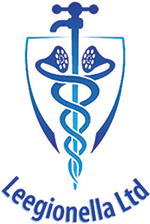Leegionella Ltd.’s Drs Susanne Surman- Lee and John V Lee recently presented an introduction to the two new British Standards in a webinar hosted by BSI on the 24th February 2022 entitled Reducing the Risk of Waterborne infections. Dr Susanne Surman-Lee introduced BS 8580-2 Water quality – Risk assessments for Pseudomonas aeruginosa and other waterborne pathogens. Code of Practice and explained how these water quality standards support the development and implementation of holistic and effective water safety plans.
P. aeruginosa poses a significant risk of increased morbidity and mortality to the most vulnerable patients in healthcare, especially those in augmented care such as those in ICU, haematology-oncology and cystic fibrosis units. The ability of P. aeruginosa o acquire and transfer antibiotic resistance is, in the long term, likely to be of far more global significance than SARS COVID-19 . Multi resistant Pseudomonas aeruginosa has been identified by the World Health Organization as of critical significance to the future public health. A world without effective antibiotics will take us back to an era of high childhood mortality, shorter lifespans and much higher risks associated with surgical interventions without antibiotic prophylaxis.
Risk assessments for P. aeruginosa and waterborne pathogens (other than those caused by a faecal/ sewage contamination incident or from Legionella (Legionella is covered in 8580-1)) need to not only consider the engineering aspects of water distribution, above ground waste water systems and any equipment which uses, stores, is cleaned by or rinsed by water, but also the way in which water is used and stored as well as the human interactions and environmental conditions which may pose a risk of infection and cross contamination .
To develop and implement a holistic Water Safety Plan, BS 8580-2 should be used in conjunction with BS 8680 Water quality. Water safety plans. Code of practice and BS 8580-1 Water quality-Risk assessments for Legionella control. Code of practice. The use of these water quality standards will reduce the risk of infection from Pseudomonas aeruginosa and other waterborne opportunistic pathogens, not just in healthcare but also other relevant settings such as the beauty, travel, leisure and recreational water industry as well as from some industrial processes where Pseudomonas aeruginosa can pose a risk of infection.
Dr John V Lee gave an update on the revision of BS 7592:2022 Sampling for Legionella bacteria in water systems, Code of Practice which is now available from the BSI Website. He highlighted the major changes including that there is now a section of sampling for commissioning, an increased emphasis on taking first flush samples and the need to validate the effect of transport and storage on the final result. This webinar is now available on the BSI website https://www.bsigroup.com/en-GB/our-services/events/webinars/2022/reducing-the-risk-of-waterborne-infections/
alongside the BSI webinar by Dr Surman-Lee on the introduction of BS 8680 in 2020. https://www.bsigroup.com/en-GB/our-services/events/webinars/2020/introducing-bs-86802020-water-quality.-water-safety-plans.-code-of-practice/

